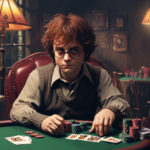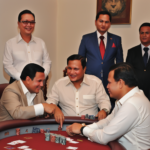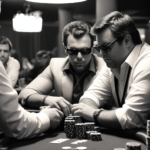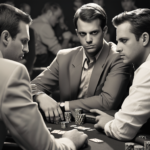
Title Text
Lorem ipsum dolor sit amet, consectetur adipiscing elit, sed do eiusmod tempor incididunt ut labore et dolore magna aliqua.

Title Text
Lorem ipsum dolor sit amet, consectetur adipiscing elit, sed do eiusmod tempor incididunt ut labore et dolore magna aliqua.

Title Text
Lorem ipsum dolor sit amet, consectetur adipiscing elit, sed do eiusmod tempor incididunt ut labore et dolore magna aliqua.

Title Text
Lorem ipsum dolor sit amet, consectetur adipiscing elit, sed do eiusmod tempor incididunt ut labore et dolore magna aliqua.

Layout Control
Lightning has column control function that you can specific column number from "Appearance > Customize > Lightning Layout Setting" and specific post edit screen.
News & Information
- Tesla338Tesla338: Situs Bandar Togel Online dengan Kemudahan Menang dan Pembayaran Jackpot Tanpa Batasan Dalam arena perjudian online yang semakin berkembang, pencarian untuk menemukan situs bandar togel terbaik menjadi fokus bagi banyak pencinta togel. Di tengah berbagai opsi yang tersedia, Tesla338 telah muncul sebagai pilihan utama bagi para pemain yang mencari kemudahan menang dan kepastian dalam … Continue reading Tesla338
- wolestogelWoleStogel: Bandar Togel Terpercaya dengan Pembayaran Berapapun Dalam dunia perjudian online, mencari bandar togel yang dapat diandalkan dan siap membayar kemenangan dengan berapapun menjadi prioritas utama bagi para penggemar togel. Di WoleStogel, para pemain dapat menemukan pengalaman bermain togel yang aman, nyaman, dan terpercaya, dengan jaminan pembayaran penuh bagi para pemenang. Keandalan WoleStogel 1. Transparansi … Continue reading wolestogel
- wayang777Wayang777: Tempat Terpercaya untuk Bermain Togel Dalam dunia perjudian online, mencari platform yang dapat diandalkan dan terpercaya adalah kunci untuk pengalaman bermain yang memuaskan. Salah satu platform yang telah memenangkan kepercayaan banyak pemain adalah Wayang777. Dalam artikel ini, kita akan membahas mengapa Wayang777 dianggap sebagai tempat terbaik untuk bermain togel yang terbukti membayar. 1. Reputasi … Continue reading wayang777
- tancap88Tancap88: Mengungkap Rahasia Bandar Togel Terpercaya 2024 Dalam industri perjudian online yang berkembang pesat, menemukan bandar togel yang dapat dipercaya menjadi salah satu prioritas bagi para pecinta togel. Dengan begitu banyak opsi yang tersedia, penting untuk memilih platform yang tidak hanya menawarkan pengalaman bermain yang menarik, tetapi juga memastikan keamanan, keadilan, dan pembayaran yang tepat … Continue reading tancap88
- sahabat4dSahabat4D: Bandar Togel Bet Berapapun, Pembayaran Lunas Dalam dunia perjudian online, pemain sering mencari platform yang tidak hanya menyediakan berbagai permainan, tetapi juga menawarkan keadilan, transparansi, dan kenyamanan dalam proses berjudi. Salah satu platform yang menonjol dalam hal ini adalah Sahabat4D. Dengan motto “Bet Berapapun di Bayar Lunas”, Sahabat4D telah menarik perhatian banyak pemain togel … Continue reading sahabat4d




